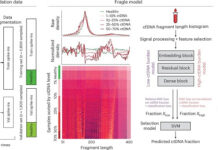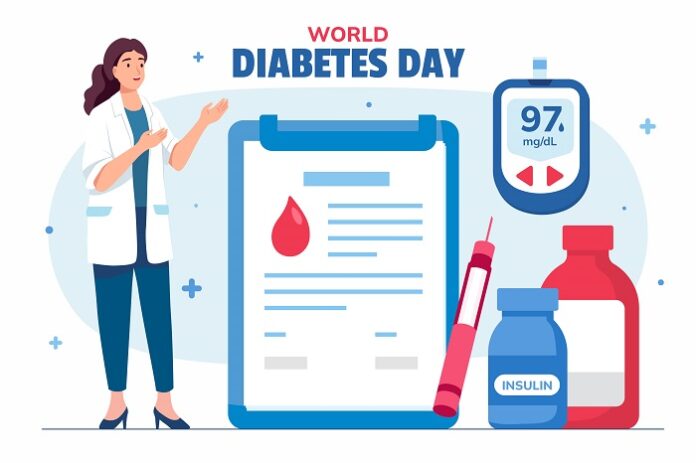Diabetes has been rising more rapidly in low- and middle-income countries compared to high-income countries, with India and China having the highest number of people with diabetes. According to IDF Atlas 10th edition, around 537 million adults (20-79 years) are living with diabetes – (1 in 10). This number is predicted to rise to 643 million by 2030 and 783 million by 2045.
Diabetes is responsible for 6.7 million deaths in 2021 – (1 every 5 seconds). This chronic condition is a major cause of blindness, kidney failure, heart attack, stroke, and lower limb amputation. This highlights the urgent need for effective prevention, early diagnosis, and proper management to reduce the impact of this disease globally.
World Diabetes Day (WDD) is celebrated every year on November 14th. This day symbolizes our collective commitment to improve the well-being of individuals with diabetes. It was established in 1991 by the International Diabetes Federation (IDF) and the World Health Organization (WHO) in response to the growing concerns about the health and economic threat posed by diabetes. The day also marks the birthday of Sir Frederick Banting, who co-discovered insulin along with Charles Best in 1922. It was officially recognised by the United Nations in 2006 with the passage of a resolution to this effect. Each year, the campaign focuses on a specific theme related to diabetes, aiming to provide an opportunity to raise awareness of diabetes as a global public health issue.
As the need of the hour, this day encourages people to get screened and create awareness related to diabetes with special focus on risk factors, clinical manifestations, complications, and management including lifestyle modifications, foot care, and medication adherence. Besides this, it’s vital to share the experiences of people with all forms of diabetes to empower those affected to take action and access the essential care they need.
A recent study on Ultra-processed foods (UPFs) provides evidence of their significant role in the rising prevalence of diabetes in India1. UPFs are typically high in refined sugars, unhealthy fats, and artificial additives, which further contribute to weight gain, insulin resistance, and poor glycaemic control. These foods, available near us as sugary beverages, packaged snacks, and fast food, promote unhealthy dietary patterns, displacing traditional, nutrient-dense foods.
This dietary shift is linked to an increased risk of type 2 diabetes, particularly in urban populations where lifestyle changes and sedentary behaviour further compound the problem. Reducing UPF intake is crucial for diabetes prevention and management in India. Since prevention is better than cure, embracing a healthy lifestyle can significantly alleviate the burden of the disease. The theme for World Diabetes Day 2024-26 is Diabetes and Wellbeing. Let’s make well-being central to diabetes care and begin the journey towards a healthier life with diabetes. Every action counts and together, we can achieve remarkable things.
References
- Almarshad MI, Algonaiman R, Alharbi HF, Almujaydil MS, Barakat H. Relationship between Ultra-Processed Food Consumption and Risk of Diabetes Mellitus: A Mini-Review. Nutrients. 2022 Jun 7;14(12):2366.
























